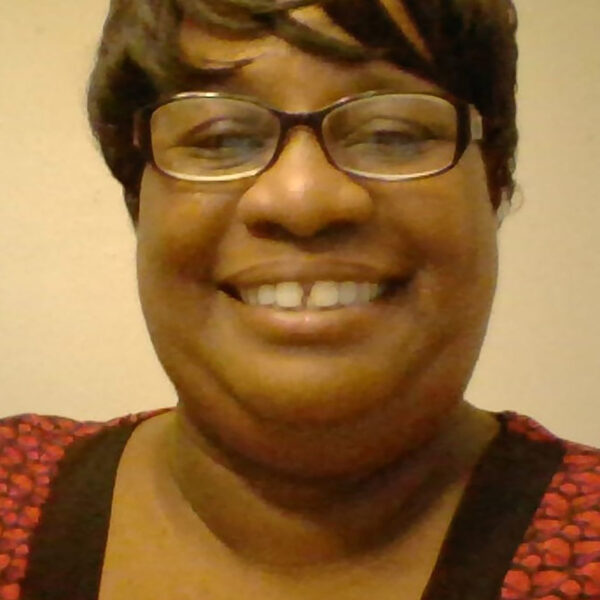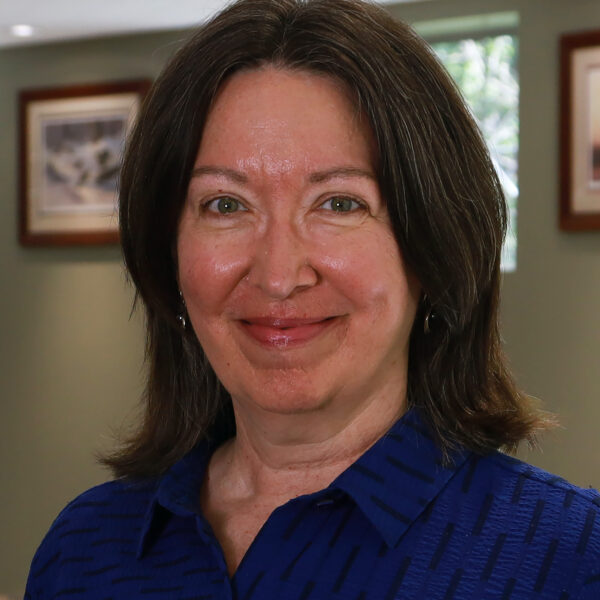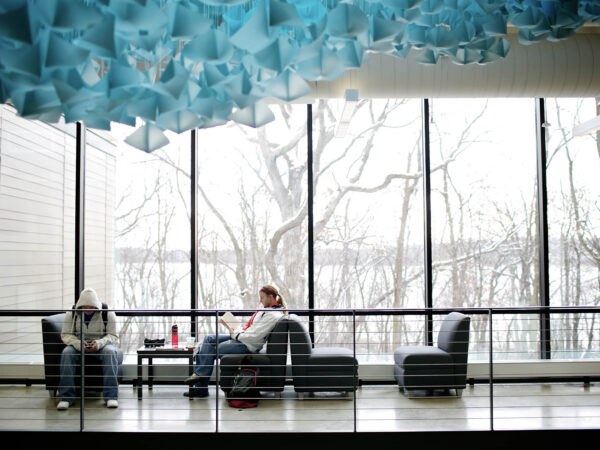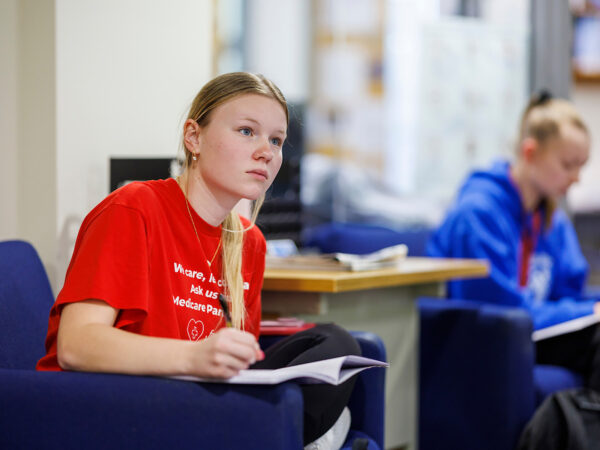Bachelor of Science in SociologySchool of Arts and Sciences
Study our social impact
You consider yourself a “people watcher,” curious about how people make decisions and how they interact. Our lives continue to change and evolve due to social forces and social interactions that we experience and how they shape our thoughts, beliefs, choices, and values. The Bachelor of Science in Sociology program begins with questions such as: “How do social forces influence people’s thoughts? What constructs and shapes people’s actions?” Through engaging coursework and practical field experience, students begin to understand patterns of behavior, inequality, social constructs, how systems work, and social change and resistance.
As a sociology major, you have two concentrations to choose from: criminology and human services. Both options incorporate the foundation of sociology into practical learning experiences in the field. Students may select both, or neither concentration, depending on their goals and interests.
The criminology concentration provides students with the opportunity to engage with criminological theories and topics, such as gender and crime, the law, capital punishment, and controversies regarding mass incarceration.
Students with a concentration in human services will take additional courses that will prepare them to pursue state certification as a licensed social worker upon graduation. Upon completion of the degree with this concentration, you can qualify to sit for the state social work exam in Wisconsin.
Madison, WI
On-campus
120
August 25, 2025
Careers within Sociology
$77,030
Average annual salary for a Social and Community Service Manager
A bachelor’s degree in Sociology prepares you for a variety of career paths.
- Human Resources Manager
- Parole Agent
- Police Officer
- School and Career Counselors and Advisors
- Social and Community Service Managers
- Social Worker
Sociology by the Numbers
100%
Of students complete an original research project
15
Average class size
85%
Of students volunteer or complete internships in the community
Sociology Student Spotlight

Alexis Vogt ‘24
Bachelor of Science in Sociology, Criminology concentration
“Studying sociology with a focus on criminology and complementing it with a minor in health and society at Edgewood University has been an immensely rewarding journey, shaping my understanding of the interconnectedness of societal structures and individual well-being. Through rigorous coursework, engaging discussions, and hands-on experiences, I have gained a comprehensive understanding of the complexities within our criminal justice system and the intricate dynamics of health disparities. Edgewood University’s interdisciplinary approach has equipped me with critical thinking skills, empathy, and a holistic perspective crucial for addressing societal issues effectively. Moreover, the supportive faculty and collaborative environment have fostered my personal and professional growth, preparing me to navigate the challenges and complexities of my future career with confidence and compassion. I am grateful for the enriching experiences and invaluable knowledge gained at Edgewood University, which have undoubtedly laid a solid foundation for my journey ahead in contributing positively to society.”
Featured Courses
Sociology 207 – Introduction to LGBTQ+ Studies
In Introduction to LGBTQ+ Studies, we start from the position that taken-for-granted systems of categorization like gender and sexuality are in fact socially developed, enforced, and reproduced such that members of societies see them as “natural.” Although these systems may be described as “social constructs,” they are quite real to the people who are categorized by them. We will rely upon sociological frameworks to better understand intragroup interactions within the broader LGBTQ+ community.
Criminal Justice 233 – Criminology
This course introduces criminology, a discipline which seeks to explain why crime happens on both an individual and society-wide level. This course covers the historical development, functions, and processes of the America criminal justice system, highlighting the role of law enforcement, the criminal courts, and corrections. This class includes discussion of varying special interest topics such as mass shootings, serial killers, cyber-crimes, drug laws, cold cases, racism and bias in the system, protests against police, and other issues of controversy and importance pertaining to socio-cultural, historical, and current events.
Sociology 303 – Food and Social Justice
Every day, the dietary choices we make have consequences for us, our communities, the environment, and people across the globe. An examination of agriculture, the food industry, and advertising reveals the causes of numerous social problems for a culture over-fed yet under-nourished by the food we produce. Yet Dane County and Madison boast some of the most progressive food practices in the nation that we’ll see first-hand.
Student Organizations
Criminal Justice Association
The Criminal Justice Association (CJA) aims to hold regular meetings to explore diverse topics relating to the field of criminal justice. Every semester, CJA invites speakers to share their insights and experiences in the realm of criminal justice. Their goal is to feature individuals representing various aspects of the field, enabling members to gain valuable insights, and engage in dialogue with them. Serving as a platform for individuals intrigued by this professional trajectory, the Criminal Justice Association strives to facilitate the expansion of knowledge across multifaceted aspects of the field. Additionally, it serves as a forum for establishing connections and fostering relationships with professionals actively engaged in the industry.
Sociology Experiences
Students intern and volunteer in the community with organizations such as the Catholic Multicultural Center, Domestic Abuse Intervention Services, the Dane County Sheriff’s Department, Journey Mental Health Center, and the Salvation Army.
Faculty Spotlights

Cassandra Thompson
Adjunct Instructor
CassandraThompson@edgewood.edu

Mary Ellen Karst
Adjunct Instructor
MKarst@edgewood.edu

Megan Beckler
Adjunct Instructor
MBeckler@edgewood.edu

Patricia Egan, MSW, Ph.D.
Senior Lecturer, Coordinator of the Human Services Program
PEgan@edgewood.edu

Carolyn Field, PhD
Professor, Director of Criminal Justice Program
CField@edgewood.edu

Jessica Gillette
Adjunct Instructor
JGillette@edgewood.edu

Annie Jay
Adjunct Instructor
Ajay@edgewood.edu

Dan Kigeya
Adjunct Instructor
DKigeya@edgewood.edu

Michelle Turner
Lecturer, Coordinator of Health and Society Minor
MicTurner@edgewood.edu
Engaging Opportunities With Culture
Students majoring in sociology benefit from a variety of experiences, including tours of organic farms, social service agencies, prisons, jails, community food programs, and housing shelters for teens. Community engagement through partnerships, project collaboration, and faculty initiatives in the diversity of Madison’s community involves students directly in experiencing and shaping the social culture in the state of Wisconsin. Aligned with the core values at Edgewood University, students will have ample opportunities to socialize and engage with the community on campus and beyond.
Related Programs
-

On-campus
Human Services Concentration -

On-campus
Bachelor of Science in Criminal Justice -

Frequently Asked Questions
We have 100% online course options which make it convenient for students to manage busy schedules. We also have some blended courses for Sociology majors to select from for their elective choices.